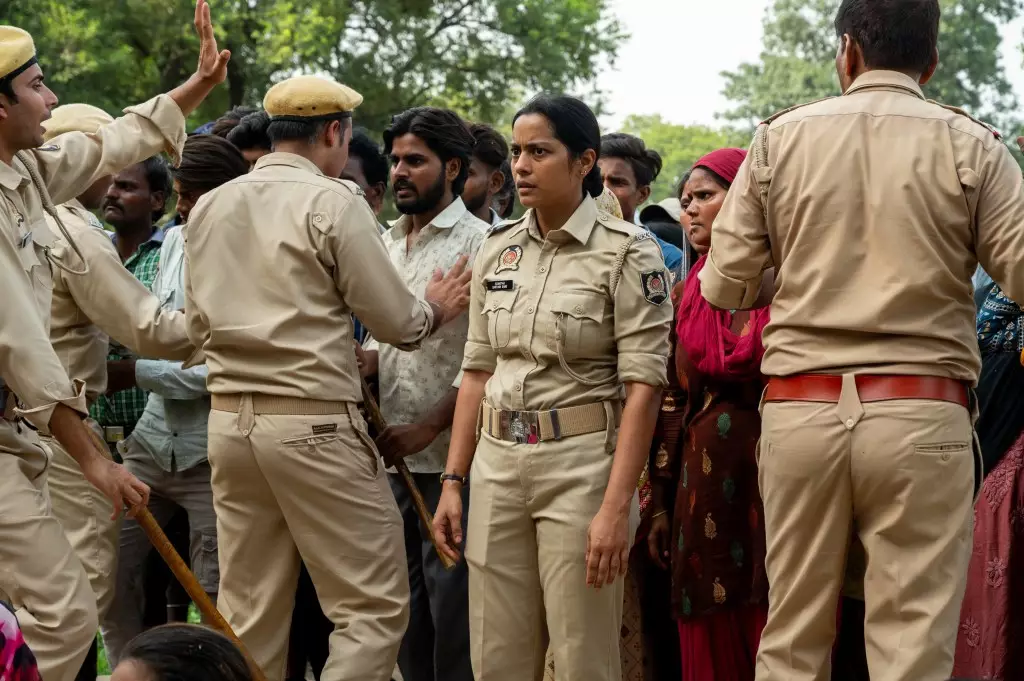The film industry witnessed a remarkable uptick in indie film releases as the year draws to a close, buoyed by a recovering box office in the post-strike landscape. This resurgence not only highlights the resilience of the independent sector but also underscores a diverse array of themes and genres that are capturing audiences’ attention. As major studios release their high-profile films around the holiday season, indie projects like *Santosh*, *2073*, and *Bloody Axe Wound* are carving out their own unique spaces in theaters across the United States.
Recent releases such as *Bloody Axe Wound*, a horror-comedy directed by Matthew John Lawrence, provide a fresh lens to examine coming-of-age narratives intertwined with dark humor. The film revolves around a teenager grappling with her family’s gruesome legacy while navigating the confusing territory of first love. Director Lawrence cleverly juxtaposes the light-heartedness of budding romance with the grim realities stitched into his characters’ lives, creating a narrative that resonates deeply with contemporary audiences who appreciate substance amid the entertainment.
Meanwhile, *Santosh*, the U.K.’s entry for the Best International Feature Oscar, unfolds a compelling tale of resilience and empowerment set against the backdrop of rural India. In this captivating film, directed by Sandhya Suri, the protagonist’s journey from the confines of domesticity to the gritty challenges of law enforcement reveals not only personal evolution but also a critique of social systems. The film maintains a 100% rating on Rotten Tomatoes, a testament to its impact and relevance in today’s world.
Asif Kapadia’s *2073* steps beyond the traditional narrative to explore the depths of a dystopian future that mirrors our present anxieties. The film portrays an unsettling reality filled with surveillance and authoritarian oppression, warning audiences of the potential decline of societal values if current trends are not reassessed. Its unique approach combines visionary sci-fi with elements of documentary filmmaking, incorporating contemporary footage that links the present global crises—surveillance, inequality, and climate change—to a potential future.
Starring Samantha Morton, *2073* transcends mere entertainment; it challenges viewers to confront uncomfortable truths about today’s world and question where society may be headed if significant changes are not made. This critical introspection is what sets *2073* apart from other offerings during the year-end rush.
Indie films are playing an increasingly significant role in elevating conversations surrounding cultural narratives and social issues. Films such as *Vermiglio*, an Italian thriller that debuted at the Venice Film Festival, are slowly making their way to screens across the U.S. With its intense storyline and artistic depth, *Vermiglio* exemplifies the quality and innovation present in contemporary international cinema.
As award season approaches, the competition becomes fierce, not only domestically but also on a global scale. *Las Frikis*, following stellar performances in initial screenings, is expanding its reach to metropolitan areas like Miami and Los Angeles. The positive reception of these films echoes the sentiment that despite the industry’s challenges, there remains a thriving appetite for independent narratives among cinephiles.
The limited releases of these films, whether in boutique theaters or mainstream cinemas, play a vital role in maintaining a varied cinematic landscape. Such screenings allow audiences to engage with content that might otherwise slip under the radar in an industry predominantly focused on blockbusters. The ability to showcase stories that reflect authentic human experiences—albeit through horror, tragedy, or science fiction—provides an enriching experience for moviegoers.
While many film enthusiasts flock to the latest features from large studios, the incremental rise of independent films beckons viewers to explore lesser-known works that often present deeper narratives and thought-provoking themes. In nurturing a diversely told story, the industry’s ongoing evolution takes a significant step toward meaningful representation.
As 2024 approaches, it is clear that independent films are not merely surviving; they are thriving, challenging clišes, and contributing to a robust dialogue on urgent social issues. The combination of haunting narratives, innovative storytelling, and cultural introspection marks a significant moment in filmmaking, one that invites audiences to both reflect upon and engage with the world around them.
